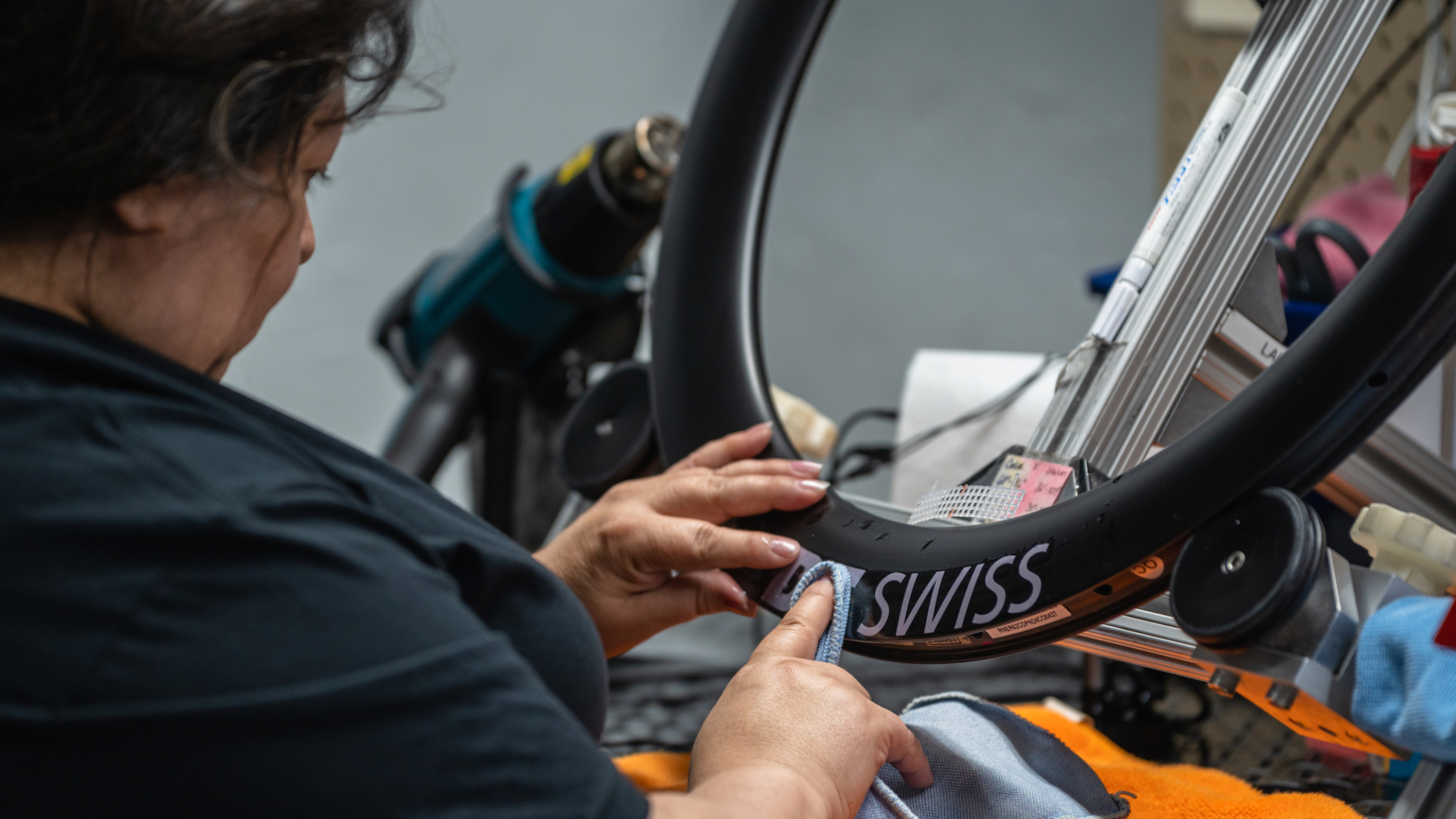
So, what exactly is a thoroughly European company like DT Swiss doing in America? When we were invited to a launch event in Grand Junction, CO, we assumed the facility was a recently built one. It turns out that DT has had a presence there since 1996.
The company may be Swiss through and through, but it established a North American headquarters after expanding into the OEM market in the 1990s. Bike companies like Cannondale and Trek were its main customers at the time, and DT needed to set up distribution nearby. Grand Junction ended up becoming the location by happenstance—an acquaintance had available warehouse space, and DT decided to give it a chance.
It stuck. Colorado offers easy distribution to both coasts as well as a top-notch riding terrain, both on and off-road. The warehouse belonging to someone else has since morphed into DT’s multi-building complex that houses manufacturing, service and distribution of its products across North America. We had a chance to sample the riding, but spent more time getting to know more about what DT has going on behind the scenes.
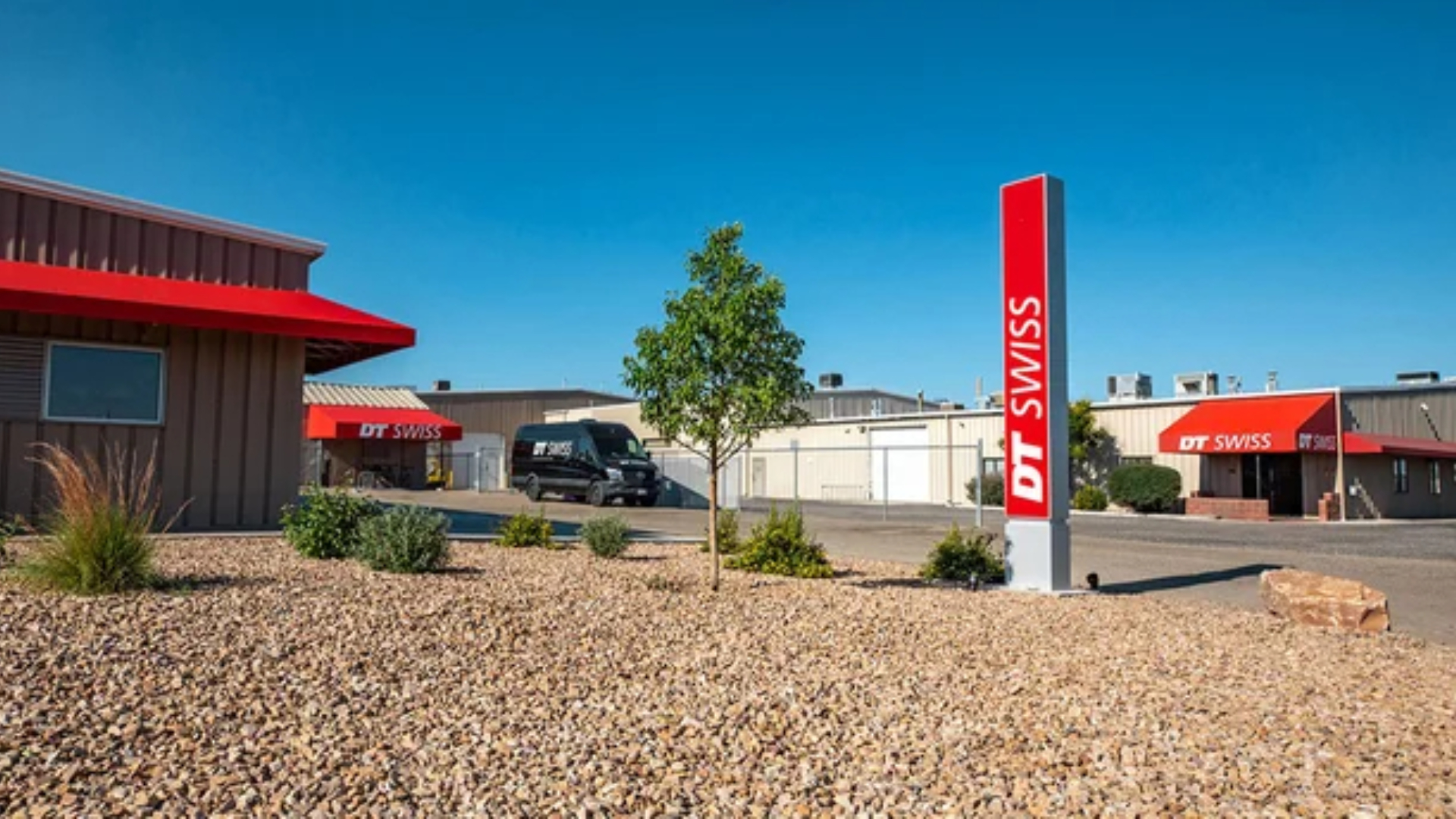
At its heart, DT is a spoke company. The name DT is derived from the German word “Drahtwerke” and the French word “Trefileries,” both of which mean wireworks. The company can trace its origins to the 1600s, back when working with wire meant making chainmail to outfit the mercenary armies of central Europe.
This larger wireworks entity began making bicycle components in the interwar years, and the bicycle side of the business was consolidated and bought out in 1994 to form DT Swiss in its current incarnation. From spokes, DT expanded into other areas: suspension, hubs, rims, and more. It is headquartered in Biel, Switzerland, which is also home to notable watchmakers like Rolex and Omega. Precision and reliability seem to be hallmarks of the region.
Most of DT’s wheel manufacturing happens in Poland and Taiwan, where the carbon and aluminum rims are manufactured. The entire DT network works in conjunction to produce on-demand parts, scaling up and back as needed. In the U.S., DT has a dedicated spoke manufacturing operation, and builds and assembles wheels as well as stores and distributes products.
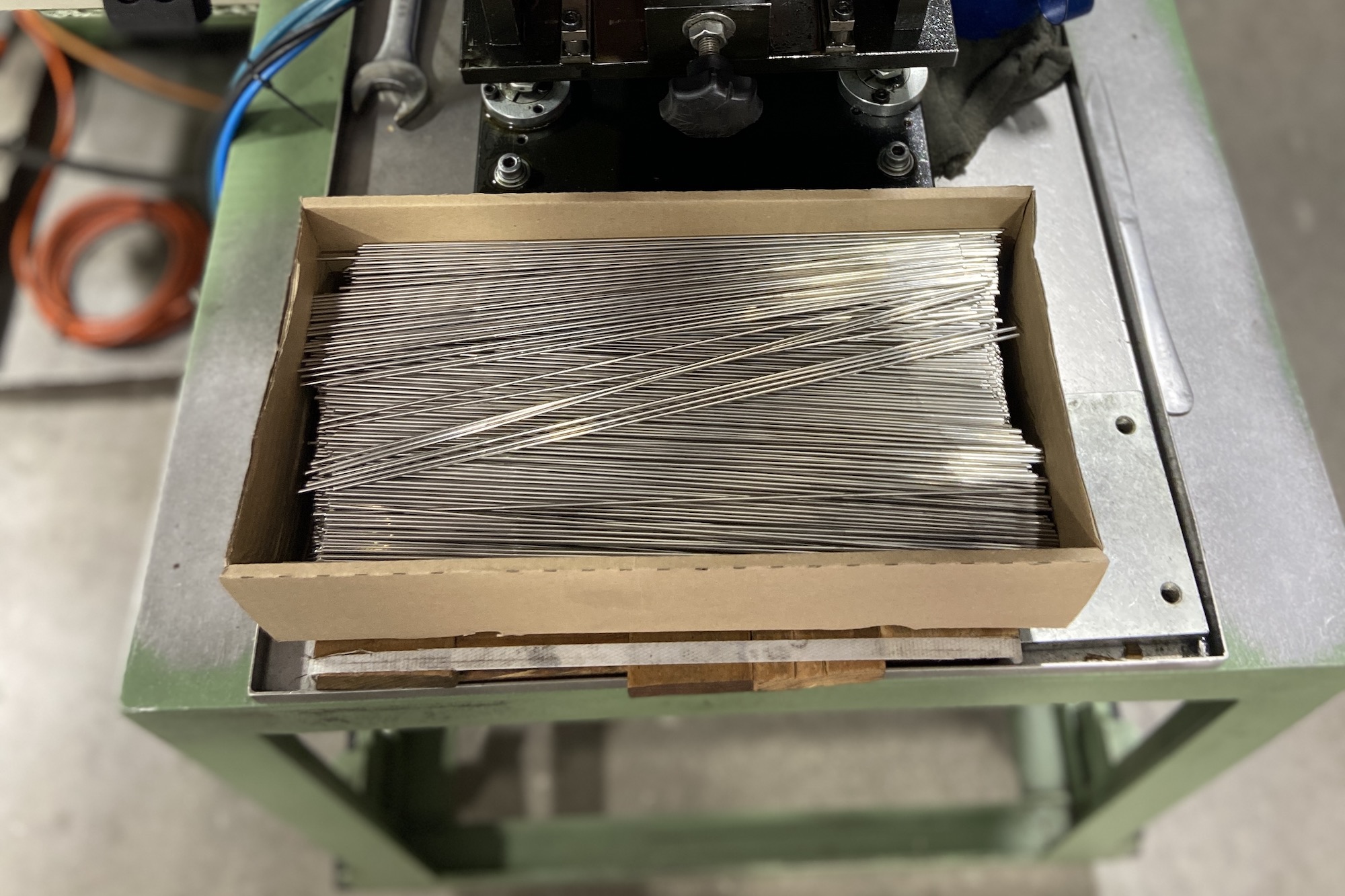
For those who have not seen this process, making spokes happens fast. Raw material in the form of steel alloy arrives at the factory on giant spools. DT uses material from the same suppliers at all of its worldwide locations. Wire goes directly from the spool into a straightening process that produces spoke blanks, cut to length. The blanks then undergo cold-forging via a hammering process to reduce the diameter in the middle when desired. Next, the blanks get precision cut, the spoke heads machine-formed and stamped (or bent, in the case of J-bend spokes), and the ends threaded. This happens by way of a rolling process, which doesn’t actually remove any material from the spoke. Throughout the process, spokes are regularly checked for a variety of critical dimensions. The entire thing is noisy and extremely fun to watch. Bladed spokes used in aero wheels are produced in Switzerland utilizing separate techniques (as far as I can tell, this means big smashing machines).
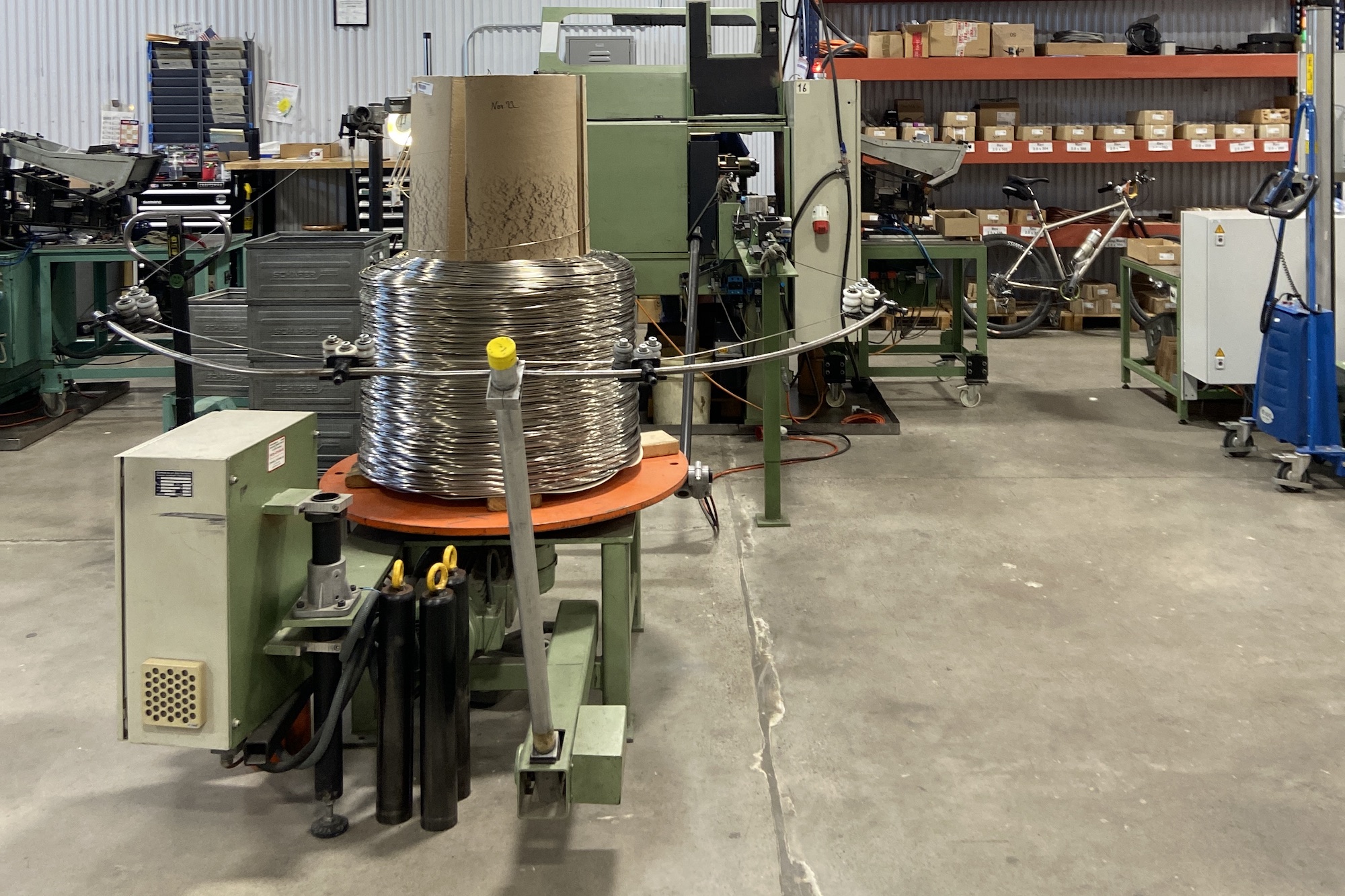
In addition to manufacturing spokes, DT does a high volume of wheel building in Grand Junction. Somewhat surprisingly, the wheel building is still done almost entirely by hand.
Each wheel goes through a multi-step process of lacing, an initial tightening, a secondary tightening, a visit to a de-tensioning machine, and then a final truing before being checked over and boxed up.
Incredibly, every carbon wheel DT builds has each and every spoke’s tension measured and logged in a database. DT knows exactly who built each wheel going back for years, and if ever there’s an issue down the line, it can pull the receipts.
Where does DT fit into the market?
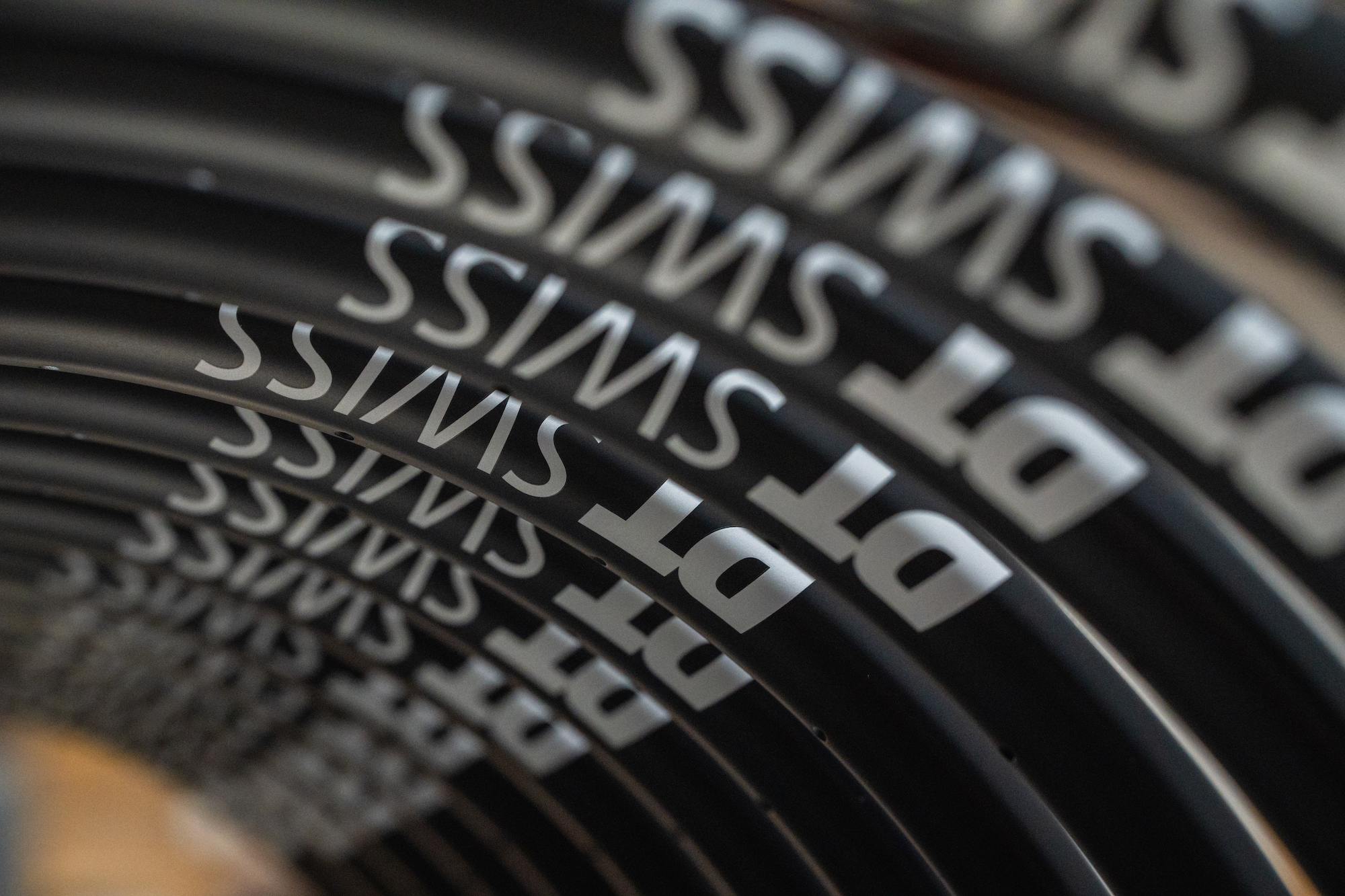
DT Swiss products certainly aren’t known for flashiness: the company doesn’t offer much in the way of shiny colors a la Chris King or Industry Nine. What it does do is make products that are highly performance-oriented and dependable.
DT sponsors two up and coming ProTour (second division) road teams, Uno-X Mobility and Tudor Pro Cycling, both of which have been steadily climbing the UCI rankings. On the mountain bike side, it has even more presence, providing wheels for multi-time World Champion Loic Bruni of Specialized Gravity Racing as well as for living legend Nino Schurter of Scott-SRAM.
A significant percentage of what DT Swiss makes goes into the OEM market: DT wheels are spec'd on a large number of complete bikes currently being sold. And the company might be best known for the sheer volume of products it produces. Hundreds of different kinds of spokes, multiple different internal ratcheting mechanisms, and rim sizes that outfit everything from cargo trikes to dirt jump bikes. If it’s a bike wheel, chances are that DT makes parts for it. DT’s fingerprints can also be found in a vast swath of wheels currently being sold under other manufacturers’ names. High-end Specialized wheels, for example, use DT Swiss hub bodies and internals.
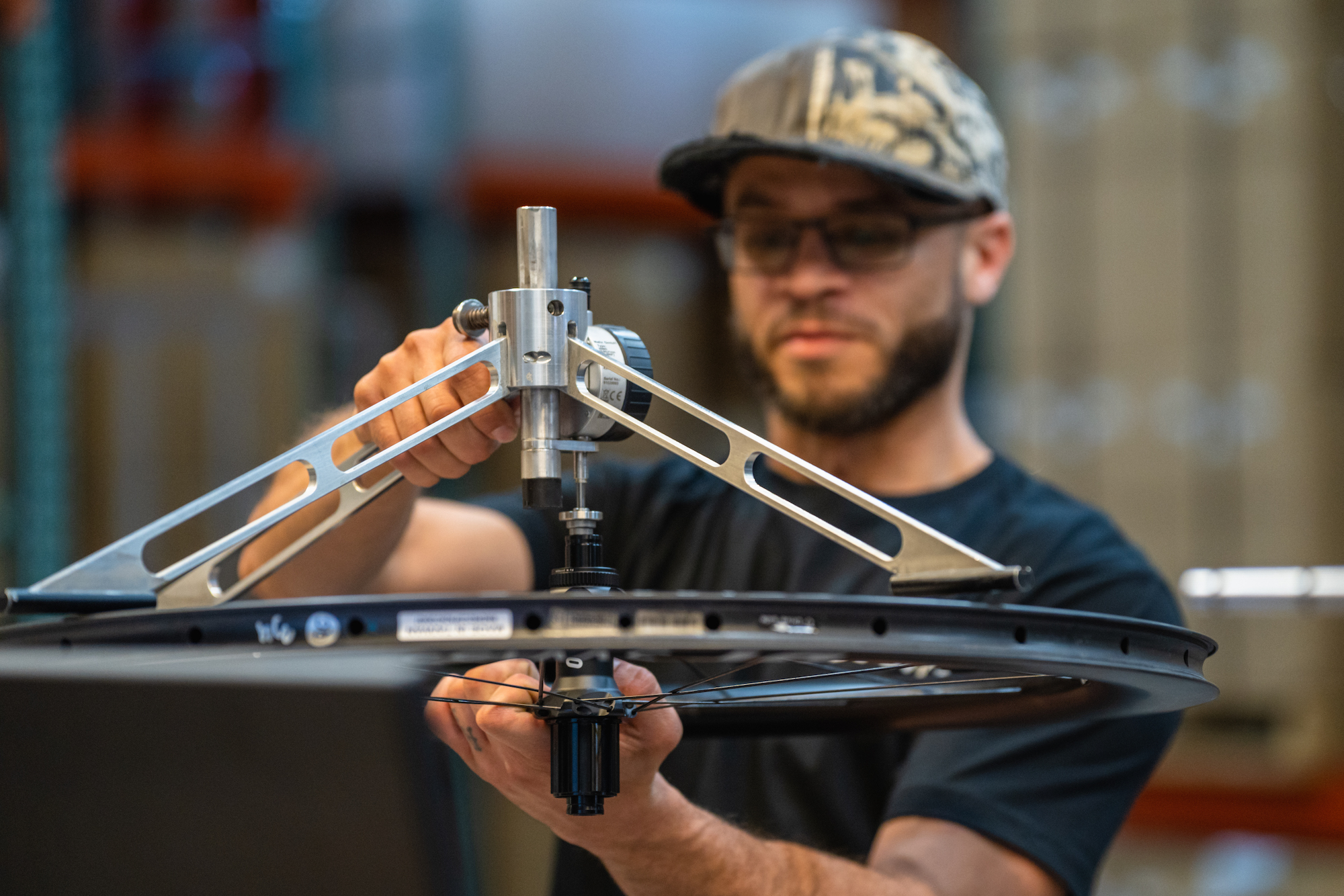
In the last few years, the wheel market has seen some new innovations in spoke material. Carbon spokes show up from time to time on new wheel releases, as well as novel polymer filament spokes. And while these innovations can offer exceptional weight savings, they can’t compete with steel spokes for reliability and precision. Molded carbon spokes cannot be trued, for one, and polymer spokes, like the ones Berd uses, lose massive amounts of tension over time.
The evidence for steel’s ongoing dominance can be seen in the pro peloton: almost every wheel being raced at the professional level uses steel spokes, many of them made by DT.
From my experience of years spent working in bike shops, I’m well acquainted with DT hubs. In terms of quality and reliability, the 240 hub has long been the gold standard, and the 240s aren’t even DT’s highest-end offering—that’s the 180 hub. Seeing the spoke-making process and hearing more from DT directly (including conversions with Switzerland) has only confirmed my impression: DT Swiss is a company at the top of its game, not so much with shiny new things, but with the tried and trueness (pun intended) of history behind everything it does.







